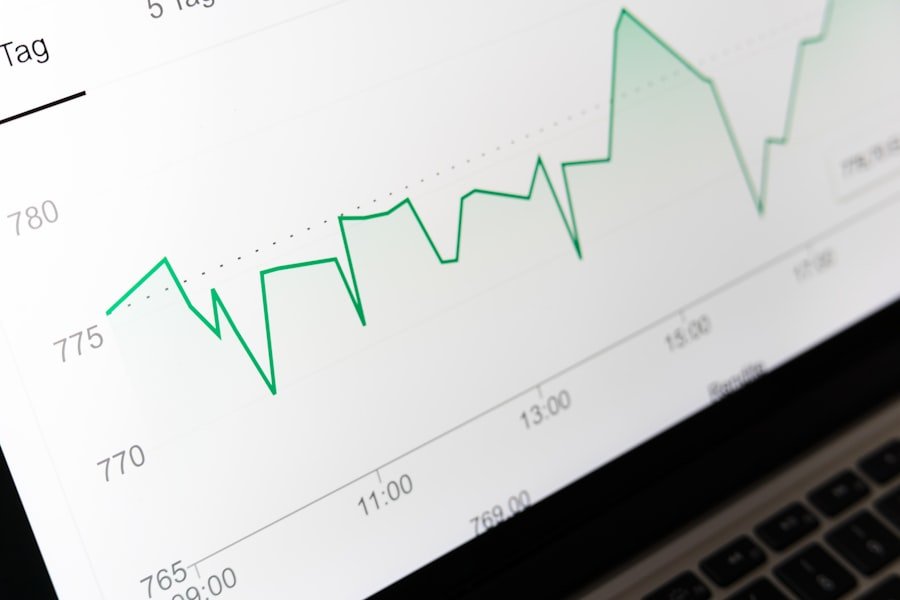In an era where data is often referred to as the new oil, the ethical implications surrounding its collection, analysis, and application have become increasingly significant. Digital ethics analytics is a burgeoning field that seeks to navigate the complex moral landscape of data usage in the digital age. It encompasses a range of practices and principles aimed at ensuring that data analytics is conducted in a manner that respects individual rights, promotes fairness, and upholds societal values.
As organisations increasingly rely on data-driven decision-making, the need for a robust ethical framework becomes paramount. This framework not only guides the responsible use of data but also fosters trust among stakeholders, including consumers, employees, and regulatory bodies. The rise of digital technologies has transformed how data is generated and utilised.
From social media interactions to online transactions, vast amounts of information are continuously being collected. However, this proliferation of data raises critical questions about consent, ownership, and the potential for misuse. Digital ethics analytics serves as a compass in this uncharted territory, providing guidelines that help organisations navigate ethical dilemmas while harnessing the power of data.
By integrating ethical considerations into analytics processes, organisations can ensure that their practices align with broader societal norms and expectations.
Summary
- Digital ethics in analytics refers to the moral principles and guidelines that govern the use of data and technology in decision-making processes.
- It is important to uphold digital ethics in analytics to build trust with stakeholders, protect individual rights, and ensure fair and unbiased decision-making.
- Ethical considerations in data collection and analysis include obtaining informed consent, protecting privacy, and ensuring data accuracy and reliability.
- Transparency and accountability play a crucial role in digital ethics analytics, as they help to build trust and ensure responsible use of data and technology.
- Addressing bias and fairness in digital ethics analytics is essential to avoid discriminatory outcomes and ensure equitable treatment for all individuals.
The Importance of Digital Ethics in Analytics
The importance of digital ethics in analytics cannot be overstated, particularly as organisations face increasing scrutiny from the public and regulators alike. Ethical lapses in data handling can lead to significant reputational damage, legal repercussions, and loss of consumer trust. For instance, high-profile cases such as the Cambridge Analytica scandal have highlighted the potential consequences of unethical data practices.
In this instance, personal data was harvested without consent and used to influence electoral outcomes, raising profound ethical questions about privacy and manipulation. Such incidents underscore the necessity for organisations to adopt ethical frameworks that govern their data practices. Moreover, digital ethics plays a crucial role in fostering innovation and sustainability within organisations.
When companies prioritise ethical considerations in their analytics processes, they not only mitigate risks but also enhance their competitive advantage. Consumers are increasingly making choices based on a brand’s ethical stance; thus, organisations that demonstrate a commitment to responsible data practices are more likely to attract and retain customers. By embedding ethical principles into their analytics strategies, organisations can cultivate a culture of integrity that resonates with stakeholders and drives long-term success.
Ethical Considerations in Data Collection and Analysis

Data collection is the foundational step in any analytics process, and it is fraught with ethical considerations that must be addressed. One of the primary concerns is informed consent; individuals should be fully aware of what data is being collected, how it will be used, and who will have access to it. This principle is enshrined in various regulations, such as the General Data Protection Regulation (GDPR) in Europe, which mandates that organisations obtain explicit consent from individuals before processing their personal data.
Failure to adhere to these guidelines not only violates legal standards but also erodes public trust. In addition to consent, the methods employed for data collection must be scrutinised for ethical implications. For example, the use of deceptive practices or coercive tactics to gather data can lead to significant ethical breaches.
Furthermore, organisations must consider the potential impact of their data collection methods on vulnerable populations. For instance, targeting specific demographic groups for data collection without considering the implications can perpetuate existing inequalities or exploit disadvantaged communities. Therefore, ethical considerations must be woven into every stage of the data collection process to ensure that it is conducted with integrity and respect for individuals’ rights.
The Role of Transparency and Accountability in Digital Ethics Analytics
Transparency and accountability are cornerstones of digital ethics analytics. Transparency involves openly communicating how data is collected, processed, and utilised, allowing stakeholders to understand the rationale behind analytical decisions. This openness not only builds trust but also empowers individuals to make informed choices regarding their data.
For instance, organisations can implement clear privacy policies that outline their data practices and provide users with easy access to information about how their data is being used. Accountability complements transparency by ensuring that organisations take responsibility for their actions regarding data usage. This can involve establishing internal governance structures that oversee data practices and hold individuals accountable for ethical breaches.
For example, appointing a Chief Data Ethics Officer can help ensure that ethical considerations are prioritised at all levels of decision-making within an organisation. Additionally, external audits and assessments can provide an objective evaluation of an organisation’s adherence to ethical standards, further reinforcing accountability.
Addressing Bias and Fairness in Digital Ethics Analytics
Bias in data analytics poses a significant challenge to achieving fairness and equity in decision-making processes. Algorithms trained on historical data can inadvertently perpetuate existing biases if not carefully managed. For instance, if a hiring algorithm is trained on past recruitment data that reflects gender or racial biases, it may replicate those biases in future hiring decisions.
This not only undermines fairness but also has broader societal implications by reinforcing systemic inequalities. To address bias effectively, organisations must adopt a proactive approach that includes regular audits of their algorithms and datasets for potential biases. Techniques such as algorithmic fairness assessments can help identify disparities in outcomes across different demographic groups.
Furthermore, involving diverse teams in the development and evaluation of algorithms can provide varied perspectives that help mitigate bias. By prioritising fairness in their analytics processes, organisations can contribute to more equitable outcomes while enhancing their reputation as socially responsible entities.
Privacy and Security in Digital Ethics Analytics

Privacy and security are paramount concerns in digital ethics analytics, particularly given the increasing frequency of data breaches and cyberattacks. Individuals have a fundamental right to privacy regarding their personal information, and organisations must implement robust measures to protect this data from unauthorised access or misuse. This includes employing encryption techniques, secure storage solutions, and regular security audits to identify vulnerabilities.
Moreover, organisations must be transparent about their data retention policies and ensure that personal information is not kept longer than necessary. The principle of data minimisation—collecting only the information required for a specific purpose—should guide data practices to reduce the risk of exposure. Additionally, providing individuals with control over their own data through mechanisms such as opt-out options or data deletion requests can enhance privacy protections while fostering trust between organisations and consumers.
The Impact of Digital Ethics on Decision Making and Governance
Digital ethics significantly influences decision-making processes within organisations by establishing a framework for evaluating the implications of data-driven choices. Ethical considerations should be integrated into every stage of decision-making—from strategy formulation to operational execution—to ensure that outcomes align with societal values and expectations. For instance, when developing new products or services based on consumer data insights, organisations should assess not only the potential financial benefits but also the ethical ramifications of their decisions.
Furthermore, governance structures play a critical role in embedding digital ethics into organisational culture. Establishing ethics committees or advisory boards can provide oversight and guidance on ethical dilemmas related to data usage. These bodies can facilitate discussions around complex issues such as algorithmic accountability or privacy concerns, ensuring that diverse perspectives are considered in decision-making processes.
By prioritising digital ethics in governance frameworks, organisations can foster a culture of responsibility that permeates all levels of operation.
Future Trends and Challenges in Digital Ethics Analytics
As technology continues to evolve at an unprecedented pace, the landscape of digital ethics analytics will undoubtedly face new challenges and opportunities. One emerging trend is the increasing reliance on artificial intelligence (AI) and machine learning (ML) in analytics processes. While these technologies offer significant advantages in terms of efficiency and predictive capabilities, they also raise complex ethical questions regarding transparency, accountability, and bias mitigation.
The challenge lies in developing AI systems that are not only effective but also ethically sound. Another critical area for future exploration is the intersection of digital ethics with emerging technologies such as blockchain and the Internet of Things (IoT). These technologies present unique opportunities for enhancing transparency and security in data practices; however, they also introduce new ethical dilemmas related to consent and privacy.
As organisations navigate these complexities, ongoing dialogue among stakeholders—including technologists, ethicists, regulators, and consumers—will be essential to shaping a responsible approach to digital ethics analytics. In conclusion, as we move further into an era defined by digital transformation, the importance of digital ethics analytics will only continue to grow. By prioritising ethical considerations in their analytics processes, organisations can not only mitigate risks but also contribute positively to society while fostering trust among stakeholders.
Digital ethics analytics is a crucial aspect of modern business practices, ensuring that companies uphold ethical standards in their use of data and technology. In a related article on businesscasestudies.co.uk, the benefits of using business credit cards to simplify startup operations are highlighted. By incorporating digital ethics analytics into their business strategies, startups can not only streamline their financial processes but also demonstrate a commitment to ethical data practices. This can help build trust with customers and stakeholders, ultimately leading to long-term success.
FAQs
What is Digital Ethics Analytics?
Digital Ethics Analytics refers to the use of data analytics and ethical principles to assess and ensure the ethical use of digital technologies and data. It involves the application of ethical frameworks and principles to the collection, analysis, and use of digital data.
Why is Digital Ethics Analytics important?
Digital Ethics Analytics is important because it helps organizations and individuals ensure that their use of digital technologies and data is ethical and aligned with societal values. It helps in identifying and addressing ethical issues related to data privacy, bias, discrimination, and transparency.
What are the key principles of Digital Ethics Analytics?
The key principles of Digital Ethics Analytics include transparency, accountability, fairness, privacy, and consent. These principles guide the ethical collection, analysis, and use of digital data to ensure that it is done in a responsible and ethical manner.
How is Digital Ethics Analytics applied in practice?
Digital Ethics Analytics is applied in practice through the use of ethical frameworks, guidelines, and tools to assess and mitigate ethical risks associated with digital technologies and data. This may involve conducting ethical impact assessments, implementing ethical guidelines, and using ethical decision-making processes.
What are the challenges of Digital Ethics Analytics?
Challenges of Digital Ethics Analytics include the complexity of digital technologies, the rapid pace of technological advancements, and the need to balance ethical considerations with business objectives. Additionally, ensuring compliance with evolving regulatory requirements and addressing ethical issues related to algorithmic bias and discrimination are also challenges.
